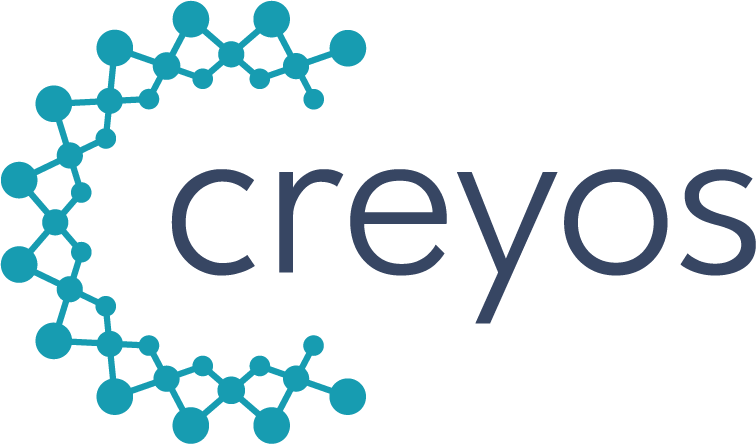
Leading the Way in ADHD Care: Creyos Health Introduces a New Online Protocol to Enhance Precision in ADHD Detection
Leading the Way in ADHD Care: Creyos Health Introduces a...
Read article
A healthcare software company powered by passionate people who are committed to helping clinicians more objectively measure and easily monitor patient brain health.
Creyos was officially founded in 2015 when world-renowned neuroscientist, Professor Adrian Owen met Marc Lipton, a business leader with a proven track record of driving success and innovation, with a personal passion for advancing healthcare’s approach to cognitive care.
Prof. Owen and Marc were excited about the opportunity to use Prof. Owen’s research and digitized cognitive tasks to transform how clinicians and researchers measured brain health.
Together, they assembled an experienced team of scientists, product designers and software architects to build the Creyos platform, helping to deliver scientifically-validated brain health insights to the healthcare community in a modern and accessible way.

Creyos Health employs a diverse team of passionate professionals, focused on making brain health easier for clinicians to quantifiably assess.
Originating from the academic community, the Creyos Health platform is backed by 30 years of research and The Owen Lab.
With a dedicated team of scientists, Creyos prides itself on delivering solutions with unparalleled scientific-validity.
A University of Cambridge team, including Adrian Owen, adapted traditional in-lab cognitive assessments, using personal computers to create digital tests tailored for assessing brain function.
With large-scale online studies proven to work, the tests were opened up to the larger scientific community, allowing any researcher to use the scientifically-validated online tests to further understand brain health.
Early versions of digital cognitive tests began being used for neuropsychological testing. Rather than only measuring how good a person is at a test, these new tests targeted the brain regions responsible for functioning in everyday life.
The tests were adapted so they could be used in scanning machines, leading to additional revolutionary discoveries about how cognition results from the structure and function of the brain.
After years of further refinement using positron emission tomography (PET) and functional magnetic resonance imaging (fMRI), the tests were moved online, unlocking the ability to conduct some of the largest cognition studies ever completed and published.
In a study published in Nature, the tests were employed to assess commercial brain training's efficacy. In collaboration with the BBC, data was collected, and a Bang Goes the Theory episode unveiled results indicating limited effects of commercial brain training on cognition.
A chance connection introduced Dr. Owen to Marc Lipton, a healthcare executive eager to apply his leadership and personal experiences to enhance cognitive care.
Dr. Owen and Marc assembled a team to turn cognitive tasks into an online platform, creating the company Cambridge Brain Sciences for simpler and more objective cognitive health measurement.
Behavioral health questionnaires are added to the Cambridge Brain Sciences platform to enable more comprehensive evaluation.
Cambridge Brain Sciences welcomes its first healthcare customer, the first of many to adopt the platform for more objective, reliable, and efficient cognitive and behavioral health assessment.
AARP chooses Cambridge Brain Sciences to deliver their Staying Sharp Program.
The company outgrows its original small office, and secures a bigger space in the heart of the Toronto financial district, giving us room to grow.
We expand our platform’s capabilities and further tailor it to align with clinician workflows, at the same time rebranding from Cambridge Brain Sciences to Creyos.
Creyos grows to support tens of thousands of clinicians and practices, further expanding its footprint in healthcare.
We are Great Place to Work- Certified ™ for the first time
At Creyos, we believe that cognitive and behavioral health govern quality of life, and that the objective measurement of these areas are essential for proper patient care.
But understanding the brain continues to be one of the biggest challenges in healthcare, and the tools commonly used to measure brain health can be inefficient and ineffective.
So our mission is to help healthcare providers evaluate brain health more objectively so they can make clinical decisions more confidently, improve patient outcomes faster, and develop more effective cognitive care plans.


Chief Executive Officer

Neuroscientist and Chief Scientific Officer

Chief Financial Officer

Chief Product and Customer Experience Officer

VP, People and Culture

Chief Revenue Officer

Chief Marketing Officer

Chief Technology Officer

VP, Science and Research

VP, Sales

Director, Finance

Director, Engineering
At Creyos our vision is that, one day, understanding brain health will be as easy as telling time. Our driven, diverse, and dedicated team are committed to turning that vision into a reality through collaboration, curiosity, and a winning team culture.
Investment in career growth
We invest in employee development, provide significant opportunities for growth and career advancement, and do everything we can to support one another to ensure individual and team success.
A culture of collaboration
At Creyos, collaboration isn’t just a buzzword – it’s the driving force behind our success. Diverse perspectives are not only welcomed, but celebrated, with teams thriving in an environment of open communication and the collective pursuit of excellence.
A rewarding workplace
We take pride in offering comprehensive benefits and employee perks. From competitive health insurance and wellness programs to generous vacation policies, our commitment to our team goes beyond the standard.

Leading the Way in ADHD Care: Creyos Health Introduces a...
Read article

Canadian Business Journal - Cambridge Brain Sciences...
Read article

Canada's Digital Technology Supercluster invests in healthy...
Read article